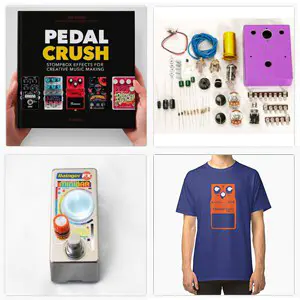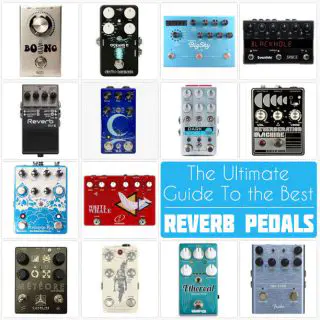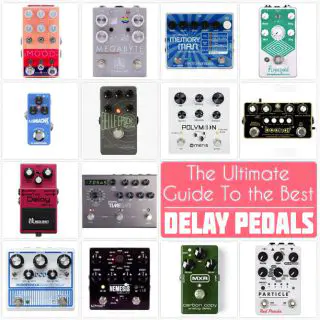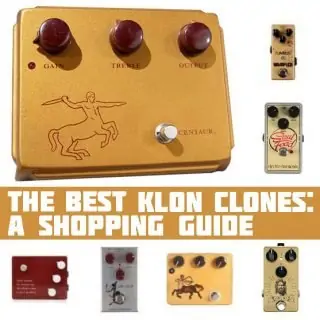| Total Slacker’s Gear: Roland TR-505 and DOD Stereo Flanger |
||
|
||
Self-described slimegaze practitioners Total Slacker may nod to early Weezer with their loose and dirty pop, and Sonic Youth with the tense and dissonant guitar work, but singer/songwriter Tucker Rountree bakes his own kind of fuzzy bud into his Fender, keeping the party moving way past Y2K. We asked the band a few questions related to recording…
How much of your recording is done at home versus in the studio?
TUCKER: Its all demo’d and arranged at home on a 4 track cassette tape studio, which focuses on the composition’s minimal aspects. Then, after a lot of rehearsals we go into the studio and produce the feeling we want with that song in more or less a live-band context.
What are the pieces of equipment that you find particularly inspiring when recording at home?
TUCKER: I use this 1990’s “DOD Stereo Flanger”, previously belonged to Zach Condon of the band Beirut, that I absolutely treasure, and a 1980’s Roland TR-505 drum machine for demos. Sometimes I use this other tape machine that Cassie Ramone gave me.
If you use a studio, what do you record there and what do you record
by yourself and why?
TUCKER: The studio is merely a tool that polishes an already conceived body of work for us. Recording at home is more like writing or recording in real time to capture musical dimensions in their first stage.
What is one piece of hardware/software would you most like to add toyour recording setup (cost not an issue)? Why?
ZOE: It’s hard because we’re so used to playing live. Being put in a room with just the four of us and headphones while being recorded feels inorganic, but on the flip-side it’s even more rewarding when our songs still retain that “live” feel in the studio that we aim for.
Do you expect your next record to be self-produced, or would you like to work with a producer? If it’s the latter, who would you most like to produce your band, and why?
TUCKER: we’d like to work with Beck, Kim Gordon or Bradford Cox on a production level. Conceptually I’d really enjoy working with Jon Stearnmore, he’s a serious brainstormer that’s shown me a lot.
Do you use rack effects or guitar pedals to forge your own sound? If you do, please list the ones you use the most and let us know why you love them.
TUCKER: B.K.Butler’s Tube Drivers are the most elegant distortion I’ve heard, it’s a very natural distortion that is created by overdriving the 12ax7 pre-amp tube with a polarity control.
TASSY: The Rat Pedal. RAT2, it puts me in the moooooodd.
Do you have a particular recording style that you aim for? What techniques do you employ to recreate it?
TUCKER: I only think about what the song wants, then later I think about production from what the writing brings.
EMILY: We’ve found that the only way to truly get a “live sound” (raucous and energetic) is to record as much of the tracks live and all at once as possible.
Who determines the direction and style of your recordings?
TUCKER: Mainly Emily and I… although, it all comes down to composition within song structure and then expanding from that with the band viscerally. We can add or take away what we desire in order to to give it that crisp feeling like, Febreze.
Is there a person outside the band that’s been important in perfecting your recorded or live sound?
TUCKER: For this record, Daniel James Schlett really helped the vision come into fruition.
EMILY: Yeah, both Daniel Schlett and his partner Marc Alan Goodman gave us really great ideas for recording and layering tracks.
What other artists would you say have had the biggest influence in
your approach to recording? Why?
TUCKER: My dad, Phil Rountree has been home recording since the 1970’s and has influenced my idea of what recording actually is. When I was like 5 I would sit on the Kitchen floor and watch him record on a TEAC reel to reel machine. He would strive for perfection, re-recording parts over and over until it crystalized the way he heard in his mind. There’s a whole albums worth of beautiful recordings he made from the 70’s and 80’s that nobody has really heard.
EMILY: Carlos Hernandez and Julian Fader from Ava Luna–they recorded our first album before we’d had much experience with the process as a band and we learned a lot from each other.
Would you say that your live show informs your recording process or that your recording process informs your live show? Both? Neither?
TUCKER: Maybe both? There was a period of time where I learned and played alongside Eric Johnson on tour, and in his studio in Texas. His engineer, Richard Mullen, worked on my Jazz record called “Ideas” when I was 23 with Leonard Cohen’s Bass player, Roscoe Beck. Richard would tell me stories of when he engineered Stevie Ray Vaughn’s albums and how they wanted to capture a “live sound”, but that recording techniques and production only go so far and it resides more in the spirit of the song and who’s singing or playing it. Eric would tell me about searching for gems among our musical ideas, and that it’s a long process of taking away. I draw from those experiences, but make it more of a spontaneous feeling, whether recorded or live.
EMILY: We want our recordings to sound as live as possible.
Is there a piece of equipment that you find particularly useful on stage?
TASSY: The Rat Pedal. As I was saying… the RAT2 puts me in the moooooodd!!!
ZOE: I couldn’t do anything without my 1960’s 22″ Zildjian ride. It has the perfect sound for our band and it’s great because its thin enough that you can crash it but also maintains a nice “ping.”
With bands doing more of everything themselves these days (recording, performing, self-promoting, etc.) and the evermore multimedia nature of the world, how much effort do you put into the visual component of your band – fashion, styling, photography, graphic/web design, etc.? Do you do these things yourself or is there someone that the band works with?
TUCKER: Were conscious of our aesthetic and we like to play in and around that reality, but ultimately it stems from what’s happening in the music compositionally but also the 4 of us creating chemistry on stage.
What do you find to be the most challenging aspects of the recording process? On the flipside, what aspects are the most rewarding?
Emily: The hardest thing about recording is fighting perfectionism, getting every little thing right so that we’re happy with it but not overdoing it so that it sounds sterile. The most rewarding part is to have something that feels lasting. That we can go back and revisit and share it whenever we like.
TUCKER: Exactly

















![_c663713_image_0[1] c663713 image 01](http://delicious-audio.com//wp-content/uploads//2014/06/c663713_image_01-214x300.jpg)
![td4[1] td41](http://delicious-audio.com//wp-content/uploads//2014/06/td41-300x240.jpg)









2 comments
Misty Holl says:
Jun 20, 2014
Excellent interview. I always like to read how musicians parents encourage their children to follow this dream.
Joey says:
Dec 14, 2014
They sound awesome! I’m gonna have to look in to some of those peddles. Check out my band The Kanonics! SoundCloud.com/thekanonics